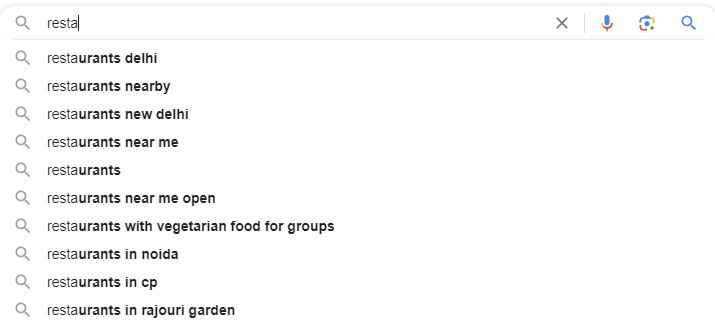SEO and digital marketing play a fundamental role in branding. One complements the other, creating a symbiotic relationship. That’s precisely why digital marketing experts emphasize the critical importance of Search Engine Optimization (SEO) for your website.
But, can we solely rely on optimizing a website for search engines to drive traffic and footfall? Not quite. We need more than that, and that’s what we’ll explore today – the crucial aspect of digital marketing designed to target local audiences: Local SEO.
What is Local SEO?
Local SEO focuses on enhancing your business’s visibility on search engines to attract potential customers within your geographic area. It revolves around optimizing your website and brand to boost local awareness, traffic, and leads generated from search engines.
Key factors that influence your website’s local SEO strategy include using local keywords, optimizing your Google My Business page, managing online reviews and ratings, and building NAP citations.
Why Local SEO is Important?
Local SEO is pivotal for drawing traffic and leads from specific localities. Small and medium-sized businesses get the best advantage of the local SEO. If you offer consulting services, run a café, or operate a pharmacy, local SEO becomes indispensable for driving visitors to your physical store and generating local orders.
Let’s substantiate this with some compelling statistics:
- 74% of customers visit a local store within 24 hours after searching for local results on their phones. Of these searches, approximately 28% convert into purchases.
- ‘Near Me’ searches have improved approximately 150% faster in the last two years as compared to the traditional search queries.
- Roughly 46% of all Google searches have local intent.
These statistics underscore the crucial role local SEO plays in attracting local customers and securing a prominent place in search results.
How Does Local SEO Works?
Local SEO follows a similar mechanism to traditional SEO, emphasizing local keyword targeting, website optimization, and backlink creation. However, there’s a distinctive aspect – Google’s local algorithm. Google considers various factors when ranking businesses, including:
- Customer location
- NAP (Name, Address, Phone Number) citations
- Google My Business profile
- Use of local keywords
- Sentiment of reviews
- Social media shares
- Number of ‘check-ins’
- Google Maps star rating
This information shows that, how businesses appear in both traditional search results and ‘The Local Pack’.
What is local pack and why we should know about it?
You may have come across terms like ‘Google Local 3 Pack,’ ‘The Map Pack,’ or ‘The Snack Pack.’ These all refer to the same thing – ‘The Local Pack.’ It consists of the first three locations Google displays when customers search for local queries.
For example, if someone wants Root Canal and searches for ‘dentist near me,’ Google will display:

These top three results, along with the Google Map, comprise ‘The Local Pack.’ Chances are, people will choose businesses from this pack. If your Google profile isn’t optimized for local search results, you risk losing out to these competitors. This is where local SEO comes into play. Let’s explore how to enhance your local SEO strategy.
4 Key Elements to Improve Local SEO Ranking
1. Local Keyword Research
Local SEO keyword research is a one-time task. Identify keywords that potential customers might use to find your products or services and incorporate them into your webpages. Keep it simple and direct. Here are some tools to help you:
- Google Autocomplete
- Voice Search

2. Google My Business
Claiming and optimizing your ‘Google My Business’ listing is crucial for improving local SEO and building trust. Consistency in the information is paramount, ensuring it matches your website and other NAP citations.
- Be consistent
- Fill in necessary information
- Get reviews
3. NAP Citations
NAP citations validate your business’s trustworthiness by confirming its Name, Address, and Phone Number on third-party websites. Consistency is key.
- Conduct a NAP audit
- Edit and correct citations
4. Link Building
Link building is essential for both general and local SEO. Local link building has an advantage, as you can leverage local connections.
- Reach out to businesses in your area
- Consider local events sponsorship
- Join your local Chamber of Commerce
Final Thoughts
Local SEO brings targeted traffic to your website from the local community. By implementing the above tips, you can outperform your competitors in the digital landscape and gain a competitive edge. When the time is right, you can expand your reach further.